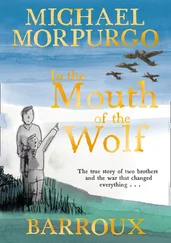Her apartment bore the scar tissue of a long, crowded life, and to an inquisitive child, it was a place of delight, a packrat’s nest. I’d once heard my father tell my mother that Grandma Dorsey hadn’t thrown away anything since the turn of the century, and this seemed a bald statement of fact: her flat was a jumble of furniture and knickknacks and improbable objects that either she or my late grandfather had found reason to keep, including toys, magazines, jars, boxes, bottles, tin cans, and for some unfathomable reason, bottle caps. She also seemed to have coasters from every saloon her husband had ever frequented, and I played with these in great stacks.
It also smelled. Like most children, I did not mind the world’s smells, not yet having developed the finicky notions of the adult world, so that today when I encounter those smells, the odors of damp, rotting plaster, ancient wood, primeval wallpaper, dirty rugs, I am nostalgic. These were the smells of a happy place, a place further associated in my mind with her baking, with the odd old toys she was always dragging out of a closet for me, with the generally hedonistic experience of being a seven-year-old boy unutterably spoiled by his grandmother.
I would play on the floor of her small musty living room or crowd her kitchen table with homemade lead soldiers that had belonged to my father and his brothers before him, and from time to time she’d steal a glance at me over her shoulder as she baked or cooked—often she’d make soup or stew or spaghetti sauce enough to feed half a dozen people, with the understanding, no, the hope that one or more of her brood would drop by.
A docile, patient woman who hummed more than she spoke—Grandma Flynn said this was the result of a lifetime of speaking to a wayward husband ’til she was breathless—Grandma Dorsey seldom had much to say to me beyond questions about what I needed and whether I was hungry. I learned early on that the answer to this latter question was always “yes” and it brought swift rewards unknown in the house where I lived. Later, one or another of my uncles or aunts on that Dorsey side might stop by to chat or see how she was, and she’d feed them, and on some nights there were three or four unexpected but perfectly welcome visitors in her kitchen, all of her issue. They were happy to see me, they thought I was just what she needed during the day to keep from going soft mentally, and they liked me, every one of them, but they had grown up in a crowd and most of them were in the process of creating their own, and I was not the center of the universe that I was in the Flynn house.
Late that summer I began to see my cousin Matt at Grandma’s house on a regular basis. Aunt Mary Jane had gotten a job downtown at The Fair store, and so he spent most of his days in the care of Grandma Dorsey. Some weeks I was there more than once, and so Matt and I came to count on seeing one another.
He was a handsome boy, blond and hazel-eyed and wild and cheerful, physically gifted where I was clumsy, confident where I was shy. He was adventurous and restless and I thought he was a sort of paradigm of boyhood. With his rough self-assurance, he seemed somehow older to me, so that I had found not only a perfect companion but an older brother. I wished I had his looks, his laugh, his voice, I became irritated with the clothes my late mother had burdened me with, for they weren’t like Mart’s. I wore saddle shoes to church and he had red gym shoes, he wore blue jeans—the first time I asked Grandma Flynn for blue jeans she said I’d wear them “over your grandmother’s lifeless corpse.” For his part, Matt thought I was funny: he was not verbally gifted, had trouble expressing himself at times, and had no memory for jokes. And if ever I was to meet a boy who needed to laugh, it was Matthew.
I fed him jokes and one-liners I’d heard from Milton Berle or Sid Caesar on television and had him gasping for breath. I wished we were brothers, and once told another boy that we were.
It was critical that he liked me: he was everything I wanted to be, and more than anything else, he had what I had already lost. He could pepper his conversation with indifferent mentions of his father and casual references to his mother. He had parents whom he saw every day, who took care of him and bought him things, and I didn’t quite believe that what I had measured up. I lived with old people, and no matter how I admired him, Uncle Tom was not my father, and I was already aware of their collective difficulty in anticipating the needs of a small boy. Once Matt made a reference to his mother and father fighting: he sounded angry with both of them, he spoke as though he hated his home, and I wondered what there could be about a home with a mother and father that would make a boy sound that way.
Under Grandma Dorsey’s attitude of Optimistic Permissiveness, my days with Matt were an unending adventure. She had a groundless belief in our basic common sense and judgment. Also since there were two of us, she felt we were safe, and so we were allowed to explore “the block”—which we took as license to roam the entire North Side.
We spent whole days in Lincoln Park, roaming the great sprawling park from north to south, from the prehistoric ridge of Clark Street to the lake itself. The park was a wilder, darker place then, with more trees and heavy clumps of dense bushes and undergrowth, and an enterprising child could find a thousand places to hide.
Statues made their home in the park, it teemed with them, and we sought them out, puzzled over their names and then just clambered over them, LaSalle and Shakespeare and Linneaus, Hans Christian Andersen and the great seated Lincoln behind the Historical Society. We threw stones at the ducks in the lagoon, tried to spook the zoo animals or their attendants, and once made off with the bucket of fish that were about to be fed to the penguins, then stood at the side of the lagoon and threw fish chunks at the young couples in the slow-moving rowboats. We crouched in the little underpasses and listened to the strange echoing sounds of our voices, climbed the high hill at the edge of the lagoon to visit the statue of General Grant; we hid in the underbrush to spy on lovers, tried to push each other into the lagoon, rolled in the grass.
Children are fascinated with the dead, and so we always sought out the graves. The land for Lincoln Park had been reclaimed from cemeteries, the old City Cemetery and several others, and when these graveyards had been relocated in the nineteenth century in an attempt to put an end to malaria epidemics, a few of the unfortunate—or lucky, depending on one’s view of a corpse’s inalienable rights—deceased had been left behind. The city admits, now as then, only to three, though the park doubtlessly rests on the bones of hundreds of early Chicagoans of all races, particularly the poor.
Foremost of these Abandoned Dead were the Couch brothers, Ira and James, resting for all time in the lone tomb left after this crepuscular relocation, a gray mausoleum just north of the Historical Society.
We would creep up to the tomb—you could get at it then, touch it, climb on it, leave your initials, anything short of entering it to visit Ira and James, and it was always a high point of our park excursions. We worked feverishly to figure out a way to get inside but failed, though Matt was certain we’d eventually crack it. “When we get older, we’ll be smarter,” went his reasoning.
The other dead man was said to be buried closer to Clark Street and now enjoys quiet celebrity due to a plaque indicating his presence in the nether regions just below the horseshoe pits: this second dead man was David Kennison, the last known survivor of the Boston Tea Party, who had lived more than fifty years after that momentous piece of public lawlessness to end his days in the swamp town at the junction of the Chicago River and Lake Michigan.
Читать дальше












